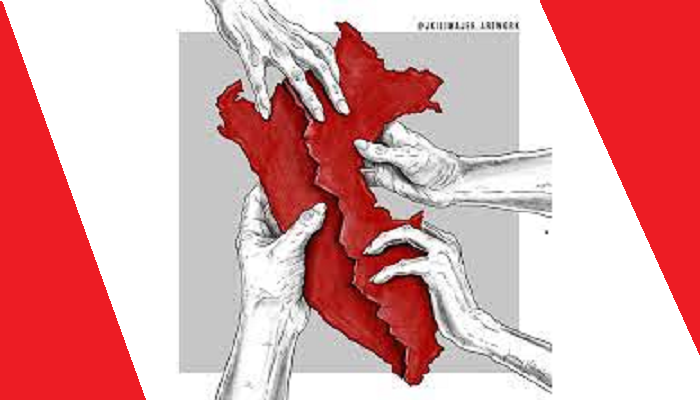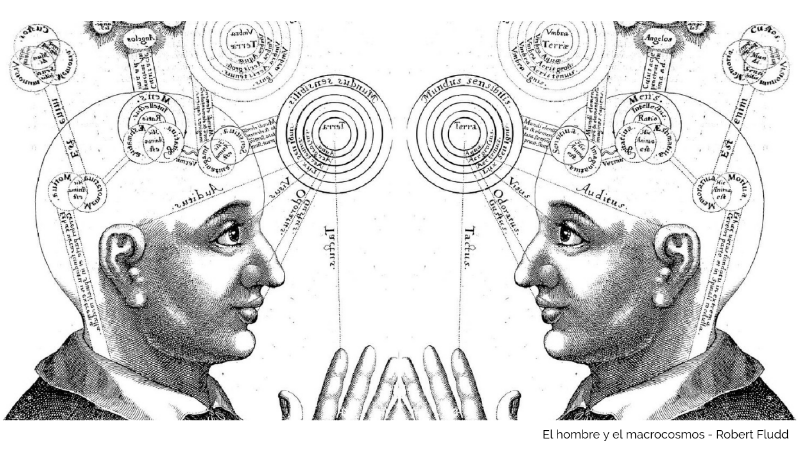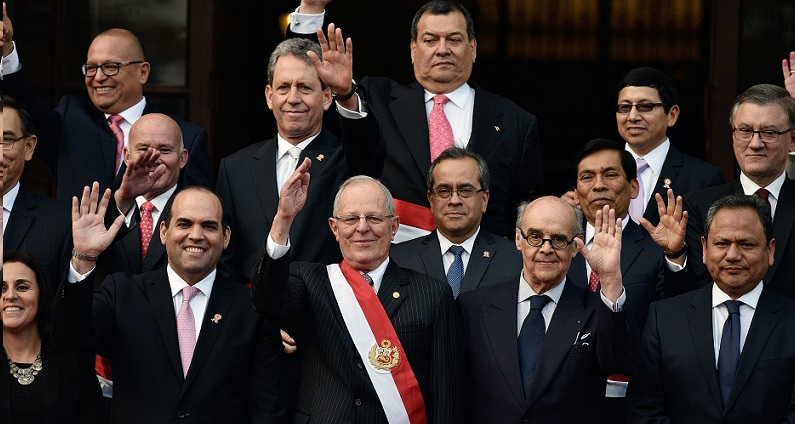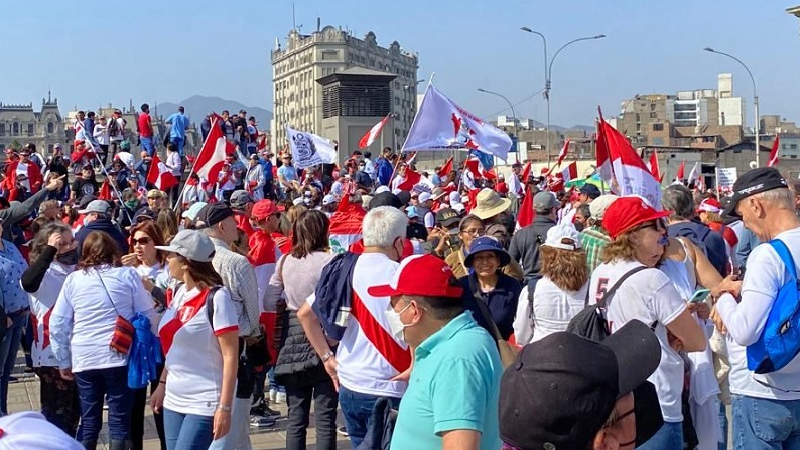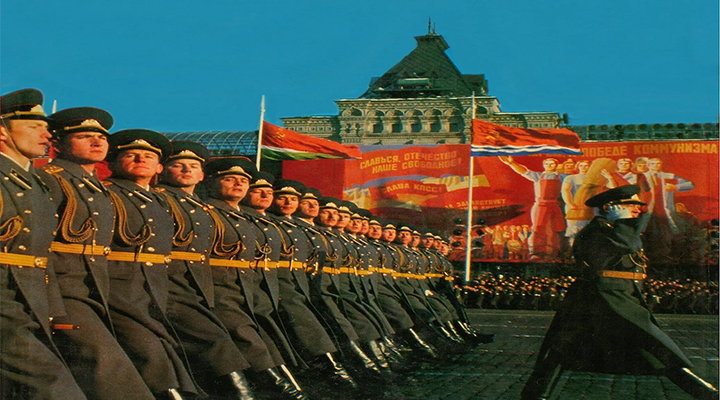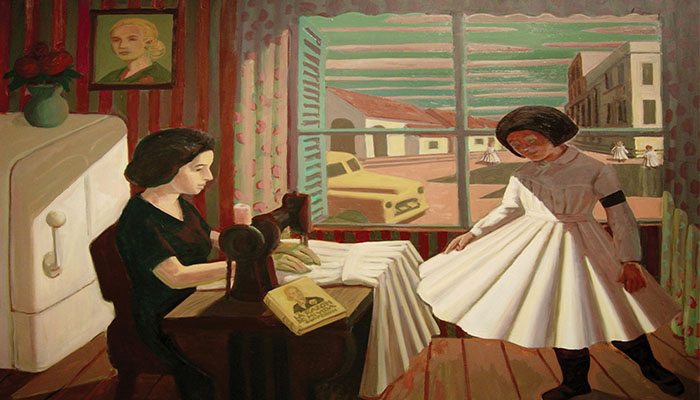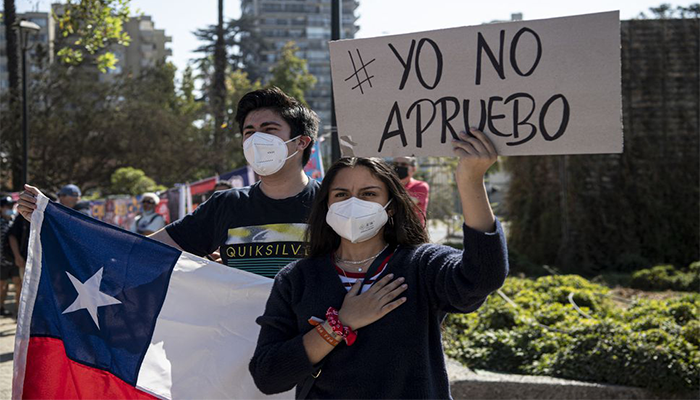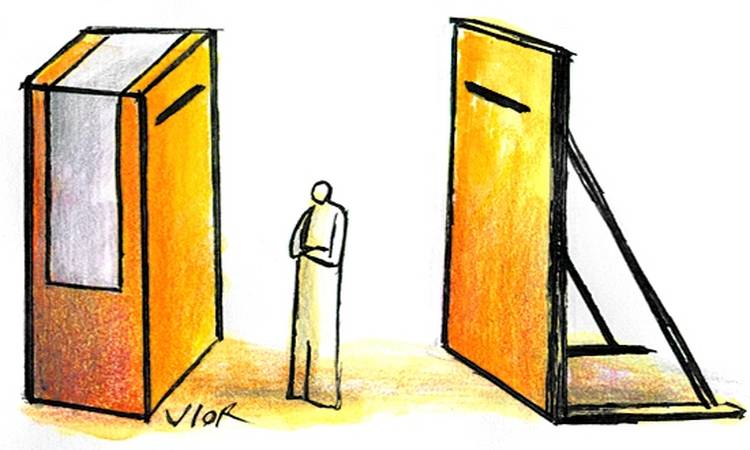ANALYSIS AND POLITICAL THEORY
Social and work Constitutionalism: genesis of economic constitutionalism
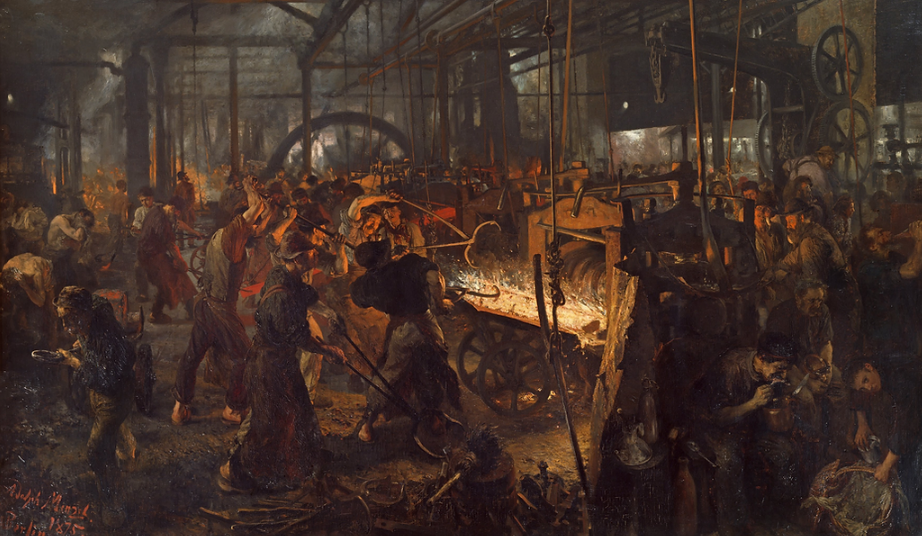
Por: Israel Lira (Filósofo, Abogado)
1. Introduction: the advent of the social question The emergence of the first two industrial revolutions brought with it great advances, but it also meant hardships for the quality of life of workers, due to the greater modernization and complexity of production relations, a product of the transition from mercantile capitalism to industrial capitalism. Thus, the so-called social question was born, which from the 18th century onwards will be a central subject of reflection for thinkers of all kinds, from the field of social philosophy, through politics, to the legal, and this also went hand in hand with a paradigm shift regarding the concept of the State. The phenomenon of stateization, that is, the formation of States, in modernity, and following Oszlak's approach (1978:112) goes hand in hand with constitutionalization, so much so that to a certain extent it could be said that statehood and constitutionality are complementary phenomena, since generally the formation of States requires the greatest institutionalization of power, and in this a process of institutionalization of authority that guides society to the realization of certain social purposes, in the sense of guiding life in society through a multiplicity of regulations. However, this was not always the case in the labor and economic spheres that are inherent to it, that is, the idea of regulations in the economic sphere is something very typical of the Social State of Law, but not so of the Liberal State of Law that It was born with the French Revolution and, in general, guided by an ultra-individualist ideal, it allowed the economic aspects to be done and passed (Delfa, 1991:63), leaving to the private parties the supposed naturalness of the exercise of the laws of the economy that, pardon the redundancy, was intended to be natural, and that is why the classical liberal ideology did not see the need to constitutionalize labor and economic aspects to guide the dynamics of production and commerce in this or that sense to avoid possible abuses. dominant positions in the market. 2. From the Liberal State of Law (liberal Constitutionalism) to the Social State of Law (social Constitutionalism) And this exclusion of any State intervention was the hallmark of the Liberal State of Law as far as the world of work is concerned, but that paradigm was going to have a resounding fall, as would later be seen in the stock market debacle of 1929 [1]. However, prior to this, the Liberal State of Law began to progressively break down due to the debates around the social issue that brought to the fore the abuses of the dominant positions of industrialists to the detriment of the labor rights that appeared in its structure. . But it must be specified at this point that, if liberal constitutionalism gave rise to the Liberal State of Law, then social constitutionalism would give rise to the Social State of Law, and this transition also came hand in hand with the change of the political subject in question. If for the Liberal State of Law the basic idea was the category of individual, for the Social State of Law it will be the category of person. We must also specify the relationship between types of State and economic systems, since we maintain, like Resico (2010:141), that certain legal-political structures promote the emergence of certain economic structures and with it, labor regimes. In that sense, following Paolantonio (1987:201-206) we will say that the transition between feudalism and mercantile capitalism was the characteristic of the transition from feudal monarchies to the absolute monarchical State, thus, after the French Revolution, the Modern nation-state, and with it the transition from mercantile capitalism to industrial capitalism. Liberal constitutionalism laid the political-legal foundations for the development of a certain economic system, laissez faire liberal capitalism. And when this began to produce very poor conditions in the world of work, reformist voices emerged from various angles of thought, marking the emergence of the legal movement of social Constitutionalism and in that sense, they contributed to the emergence of structural changes that in turn provided a basis for what would be the Social State of Law and which, unlike the Liberal State, promoted directed capitalism. 3. Social Constitutionalism as the basis of economic constitutionalism The impoverishment and pressing inequalities that industrial advances brought with them were considered acceptable consequences of economic progress [2]. That way of thinking had to change because it was completely inefficient for integral human development, and that change came hand in hand with social constitutionalism. Regarding this matter, there are two approaches in legal doctrine and in academia, in the sense that many see social constitutionalism as a mere reform of classical liberal constitutionalism, that is, a continuation of it but under a more human face, such is the position of Paolantonio (1987) and Delfa (1991), that is to say that, in a few words and for those in the know, between liberal and social constitutionalism there would be no rupture but continuity, however, we come to bring a different approach on this occasion , justified in three consubstantial ideas, that we can speak of a break, not total, with its nuances, but a break after all [3] due to the following: a) Social constitutionalism, as a legal-political movement, had a diversity of influences and actors, not only liberals, what is more, the liberals assigned to this current would not be the typical classical liberals, but rather the branch of socioliberals critical of classical liberalism as we will see in point 3. b) Social constitutionalism is a frontal and confrontational response to classical liberalism, which strongly questions and criticizes the individualist philosophy (which exalts the egotistic conception of the individual) of liberal constitutionalism i> and its narrative of non-intervention, confronting the latter with a personalist philosophy of solidarity (which proposes the conception of the human person derived from Christian social thought) [4]. c) Social constitutionalism was originally born from revolutionary and non-liberal reformist experiences, such as the Mexican Revolution of 1910 [5] and the German November Revolution (1918), which found greater justification in a multiplicity of currents of thought of the social question, the most important being the aforementioned socioliberalism (Stuart Mill and Leonard Trealwny), Christian conservatism (both Protestant: Bismarck; and Catholic: Pope Leo XIII), social democracy (Eduard Bernstein), and socialism democratic (Ferdinand Lasalle). It is within this framework that the two revolutionary experiences noted above gave birth to working documents that would later lay the foundations for the pioneering Constitutions in the constitutional recognition of aspects strictly linked to the sphere of work, production and social security, as well as as well as natural resources, what would later be called Economic Constitution, that is, the part of a political Constitution, reserved for the regulation of socioeconomic aspects [6]. Thus we have that the concept of economic constitution is a consequence of the work and development of social constitutionalism. These two being pioneering constitutions in particular: the Mexican Constitution of 1917 and the German Constitution of 1919. Let's talk briefly about both. 3.1. The Mexican Constitution of 1917: Result of the 1916 constituent assembly called by the social democratic president Venustiano Carranza. In this constitution, the first provisions on work and social security were established, in its article 123, «...the maximum daytime work day of eight hours and seven for night work; prohibits unhealthy or dangerous work for women in general and for children under sixteen years of age, as well as night work for them. It prohibits the work of minors under twelve years of age and limits the work of those between twelve and sixteen to six-hour days; establishes mandatory weekly rest; protects the pregnant worker before, during and after childbirth; refers to the minimum wage that the worker must enjoy according to the conditions of each region; provides for the participation of workers in the profits of all agricultural enterprises; establishes the principle of equal remuneration for equal work; exempts the minimum wage from embargo, compensation or discounts, prohibits the payment of wages in merchandise, vouchers, tokens or any other form of substitution for cash; contemplates the payment of overtime hours of work and limits them to three hours a day for up to three consecutive times; requires employers to provide agricultural workers with comfortable and hygienic rooms, schools, infirmaries and other services necessary to the community; holds employers responsible for work accidents and occupational diseases of workers; establishes hygiene and occupational health; recognizes workers and businessmen the right to form unions and associations to defend their interests;admits the right to strike and the right to stop or suspend work due to excess production; creates mechanisms to resolve labor conflicts; determines privileges in favor of the worker's credit for wages earned during the last year and compensation, in case of insolvency or bankruptcy of the employer, etc.» (Delfa, 1991: 64-65). To this article we can add the provisions on free education (3rd), public health and housing programs (4th), freedom of work (5th), legislative powers in economic matters (73rd), etc., that is, what It would make up the entire bulk of the economic Constitution of Mexico. 3.2. The German Constitution of 1919: It replaced the Imperial Constitution of 1871 after Germany's defeat in the First World War and attempted to provide a solution to the German social, political and economic debacle with a new social pact. In that sense: «...social democracy, which long ago renounced Marxist postulates, manages to impose a supreme charter that overcomes the natural selfishness of the individual. Article 151 is clear in this sense: “The order of economic life must respond to the principles of justice with the objective of guaranteeing everyone a humanly dignified existence. In such borders the economic freedom of the individual must be ensured. Legal coercion is only admissible for the realization of threatened rights or to satisfy extraordinary demands of the common good. Freedom of commerce and industry is guaranteed within the limits established by law” (Delfa, 1991:65-66). The economic Constitution of labor, that is, the Arbeitsverfasung was placed in Chapter V of the German Constitution entitled precisely as "Economic Life", and where regulations on economic freedom were established (Art. 151º .), the social function of property (153rd), freedom of contract (152nd), land use, ownership of land and natural wealth (155th), social protection of labor (157th), freedom of association (159th) , right to work (163º), etc. According to everything seen, it is important to point out Dobre's reflections on the matter: «The fundamental thing about this construction was, therefore, that, through joint participation with the workers, the businessmen ceased to be “the exclusive owners of the economy.” ” …Under this vision, the economy had to integrate both factors (capital and labor); an integration that would have as its ultimate objective the common good in socioeconomic matters” (2021:163). 4. From the Social State of Law (social Constitutionalism) to the Social and Democratic State of Law (democratic and social Constitutionalism) In the interwar period, the crisis of the Liberal State of Law was followed by the imprint of the Social State of Law, but both the Liberal State and the Social State were also criticized by other contenders, in reference to what would later be the Socialist State of Law (as a consequence of socialist Constitutionalism, which determined the legal-political framework for economic socialism) and the Fascist State (as a consequence of a misnamed Fascist Constitutionalism[7] that determined the framework for awar economy [8]). After the Second World War, and the human drama experienced and the enormous social and economic cost of the war, the Social State of Law had to be expanded (oversized) to cover social demands, thus giving birth to the Welfare State. characterized by interventions that are inconsistent with the normal development of the market due to the influence of Neo-Keynesianism. However, excess public spending ended up overloading the Welfare State until it succumbed to major inflationary crises, such as the crisis of the Welfare State in the United Kingdom known as thewinter of discontent (1978-1979). ). In all this interim, several economic schools were already developing other theories to harmonize proposals in the face of post-war crises, in stages as early as 1945, with particular mention being made of the German Freiburg School. Thus, within these reflections it is considered that the midpoint between deregulated economic freedom (what would become the neoliberalism of the Washington Consensus with great hemispheric influence, with emphasis on the Latin American region, but also in the countries of the Eastern bloc that came out of planned economies) and excessive social justice (the crises of the Welfare States and the collapse of Communism in Eurasia), it was theorized that what was urgently needed was to harmonize economic freedoms with social justice, that is, freedom in the market with social equity from the State, thus being that from the synthesis of the Social State of Law and the State of Welfare[9], the Social and Democratic State of Law would emerge, and it is considered that the economic regime most appropriate to this form of State It is the Social Market Economy (or also called social capitalism), thereby endorsing Resico (2010: 141) by specifying that "economic and political systems are related." In this context (ranging from 1948 to 1990), the utmost importance of having a framework of economic guidelines reflected in the political constitution, that is, the economic constitution, was once again present, given that it started from the idea of that the economic order was no longer a spontaneous order, but on the contrary, an elected order and as an elected order, it had to be constitutionally protected to avoid abuses of both the State (of political power) and positions of dominance. of the business community (of economic power), that is, to guarantee political democracy it was necessary to guarantee economic democracy at the same time. These approaches inspired policies that began to be adopted by countries that subscribed to the framework of Social Capitalism, such as the Nordic Countries and nations that would later form part of the European Union, particularly Germany (homeland of the Freiburg School of Economics). The reception of all these approaches in Latin America and in Peru in particular came precisely with the erosion, likewise, of the populism-developmentalism policies that Fernando Belaunde Terry (1963-1968), Juan Velasco Alvarado (1968-1975) had. and Alan García Pérez (1985-1990), its main representatives. This period ended abruptly due to excess public spending, the budget deficit and the inflationary process. Without prejudice to the aforementioned, the first economic Constitution, properly speaking, that Peru had was the Constitution of 1979, and which was taken up with the variations of the case due to the influence of the Washington Consensus, with the Constitution of 1993. 5. Final thoughts In Peru, the first antecedent of social Constitutionalism, which in turn provided the basis for the subsequent emergence of the first economic Constitution of Peru, was the Constitution of 1920, which is precisely what inaugurated, formally at least, social Constitutionalism in Peru. , and we say formally since it is not news to anyone that in the Oncenio of Leguía, the constitutionalized advances on social and economic rights in the world of work, would not have effective exercise due to the semi-feudal situation in which Peru still found itself. so. A situation that would not be attenuated until the Sanchezcerrista Constitution of 1933 and abolished from the roots with the structural reforms carried out by the Revolutionary Government of the Armed Forces led by General Juan Velasco Alvarado that would lead to the Constitution of 1979. In Peru, there is an urgent need for greater knowledge and research on economic Constitutionalism, since we witness that, despite being a topic of utmost relevance for national destinies,while the economic Constitution guides the economic life of the nation, we do not see that, from the political operators, both on the left and on the right, there is technical knowledge on the subject, which gives rise to radical changes being proposed without technical support, or we also have the other extreme, a continuity without changes which is already alien to the broad dynamism of the Peruvian economy. Economic constitutional law, we consider, is the most favorable laboratory of ideas for reflection on the improvements that can be made to our economic Constitution. 6. Bibliographic references OSZLAK, Oscar. (1978). "Historical formation of the State in Latin America: theoretical-methodological elements for its study." CEDES Studies, vol.1, No.3 MARTINEZ DELFA, Norberto Quinto. (1991). «Genesis of Constitutional Law». Legal Magazines. JURIS. RODERO MARTÍNEZ, Ana. (2017). "The Great Depression, the New Deal and social work." Journal of Experimental Anthropology. University of Jaén. RESICO F, Marcelo. (2010). «Introduction to the Social Market Economy». Latin American Edition. Konrad Adenauer Stiftung. PAOLANTONIO, Martín. (1987). "Background and evolution of constitutionalism: liberal constitutionalism and social constitutionalism." Lessons and Essays Magazine, No. 47. University of Buenos Aires. BELTRAN PARDO, Edgar. (2000). "Poverty in Smith and Ricardo." Journal of Institutional Economics, Vol. 2, No. 2, Bogotá. pp.111-130. SANTIAGO, Alfonso. (2001). «The concept of Common Good in the Argentine constitutional system. "Solidarity personalism as the ideological ceiling of our Constitution." In: Magazine of the Pontifical Catholic University of Argentina. Year VII No. 12 pp. 239-316. DOBRE, Daniela. (2021). "Economic constitution: a proposal for the conceptual debate." Journal of Public Law: Theory and Method, Vol 3, pp.157-198. KNIGHT, Alan. (1986). «The Mexican revolution: bourgeois, nationalist, or simply “great rebellion”?» Political notebooks, number 48, Mexico City, ed. It was October-December. pp. 5-32. MACHICADO, Jorge. (2007). "What is social Constitutionalism?" In: Legal notes. VALERO FLORES, Carlos Norberto. (2008). "The economic chapter of the constitution and development of Mexico." Green Series Economic Issues. BETANCUR, Victor Julián. (2019). "Social and Democratic State of Law: a political, legal, economic and sociological reality for the guarantee and protection of fundamental rights." In: Omnia, magazine of the Universidad del Rosario of Colombia.
<< If for the Liberal State of Law the basic idea was the category of individual, for the Social State of Law it will be the category of person....>>
2024-09-22 18:32:45
Visitas: 449

Social and work Constitutionalism: genesis of economic constitutionalism
If for the Liberal State of Law the basic idea was the category of individual, for the Social State ...
Leer más...
Kamala Harris vs Donald Trump Who won the debate?
The second presidential debate 2024 between Donald Trump vs Kamala Harris
Leer más...
WHY TAKE THE 2030 AGENDA SERIOUSLY?
The 2030 Agenda includes all those problems that today are at hand and can be solved by the great tr...
Leer más...
Michel Foucault and Byung-Chul Han en el Perú
Michel Foucault and Byung-Chul and their postulates on biopolitics and psychopolitics
Leer más...
The crisis in Haiti: multidimensional analysis of its causes, consequences and futuro
aggravated since the social outbreak of February 2019, which has become what many today describe - a...
Leer más...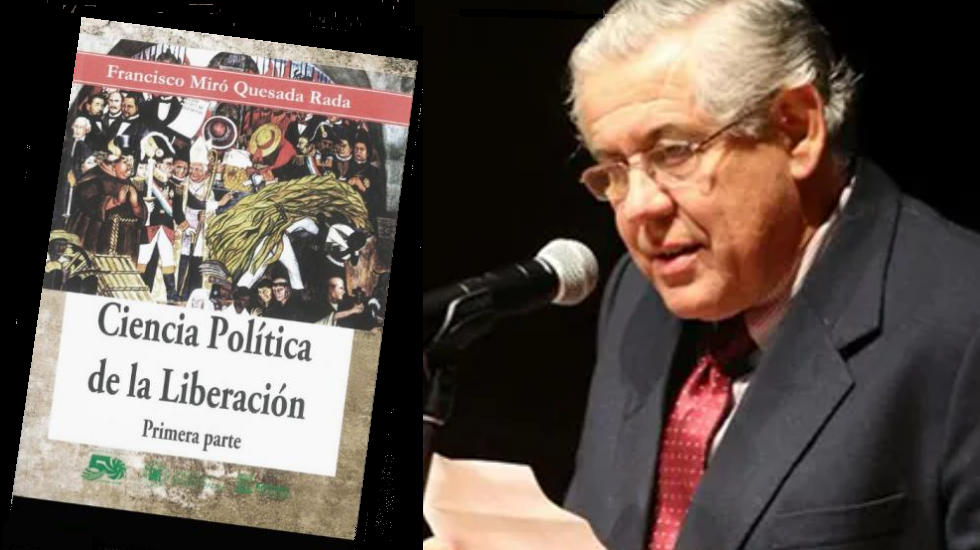
Miró Quesada Rada and the political science of self-liberation
The political science of liberation is a system with diverse sources, typical of social philosophy a...
Leer más...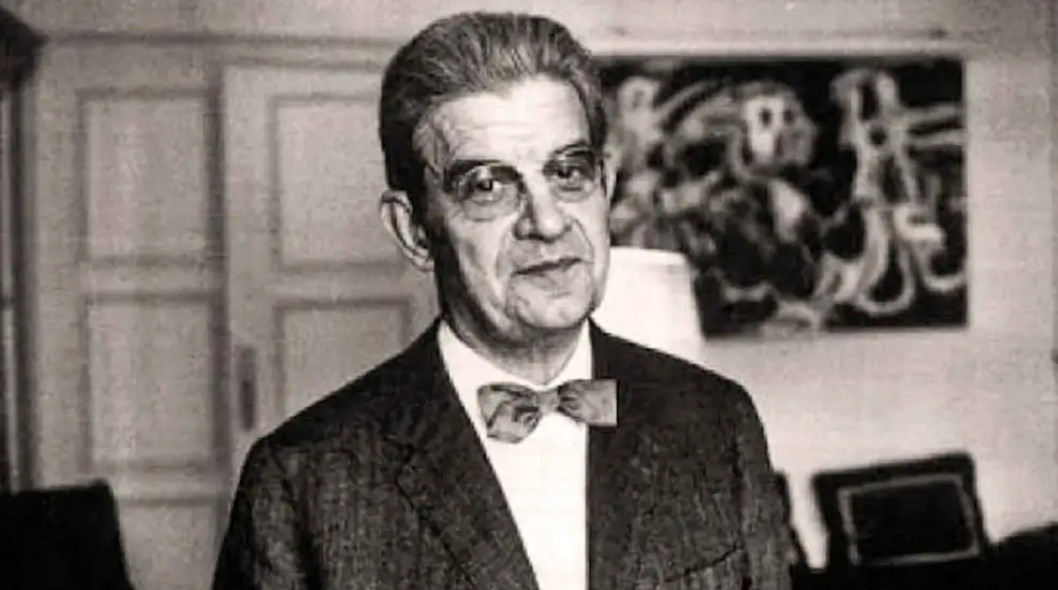
How did Jacques Lacan think?
For Lacan, the fundamental mechanisms of the unconscious are mechanisms of discourse, and are found ...
Leer más...
How did Jacques Lacan think?
For Lacan, the fundamental mechanisms of the unconscious are mechanisms of discourse, and are found ...
Leer más...